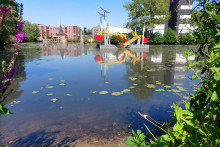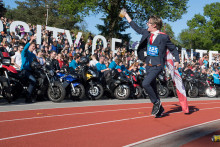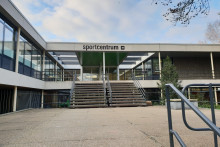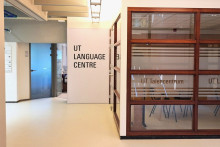Student accommodation hard to find once again…
As is the tradition in the run-up to the new academic year, there are reports of the housing crisis among students. The Amsterdam broadcaster AT5 reports that even foreign second-year students are having problems if they have to leave their accommodation after a year. “It feels like a stab in the back.”
But where can you get some extra accommodation? In Eindhoven the opportunities for renting out rooms have been expanded. “People can earn some money on the side, make a young student happy and help the region.” In Wageningen and Nijmegen students might have to share their room.
… and cool rooms even harder…
In a student apartment block in Groningen the temperature sometimes rises to 50 degrees, say the tenants. Local representatives of political parties have been asking questions. Not only apartment blocks but also temporary (student) accommodation can get very hot.
… but there might yet be an energy allowance!
Can the aircon be switched on? A student has won a court case against the City of Nijmegen about the energy allowance of 800 euros for low-income households. On the government’s advice, the City Council was not willing to give that allowance to students. But the court ruled that making a distinction between students and other residents cannot be justified.
So will all students living away from home now get the allowance? That is not clear. Some municipalities are changing their mind, others are not (or not yet). So you might have to wait a bit longer with the aircon.
Introduction weeks popular again…
The introduction weeks for new students are as popular as ever. The coronavirus crisis has not put a stop to that. Freshers get to know the city and their educational institution in groups, along with all the corresponding associations and fraternities. In some cities – Utrecht, for example – secondary vocational education students can take part as well, although not many have signed up.
… and student associations as well
Princess Amalia will not join the Amsterdam student association A.S.C./A.V.S.V. for the time being, presumably because of the recent row about male members referring to women as 'whores' and 'sperm buckets'. It is not known whether she will choose another association. But other students are in the queue to become a member of an association, including of A.S.C./A.V.S.V.
Anti-cheating software finds it difficult to recognise black faces
A black student at VU Amsterdam has filed a complaint with the Netherlands Institute for Human Rights about Proctorio, the anti-cheating software for online exams. She says the software is bad at recognising black faces. Sometimes Proctorio thinks that there is no face in the image. Others have drawn attention to the problem as well.
The university is not making any excuses. “We sincerely regret that the student has experienced stress through using the system”, it states. But it says that no connection has been demonstrated between a student’s skin tone and problems with the software.
Dutch Research Council awards research-abroad grants...
Fifteen young scientists (five men and ten women) can do research in another country for one or two years. They are getting a Rubicon grant for that purpose. A total of 47 applications were submitted.
The recipients are carrying out research on issues such as getting fuel from carbon dioxide, radicalisation by conspiracy theories, and predicting migration flows due to climate change. Ten of them are going to the United States and the United Kingdom, two are going to France and the other three have opted for Belgium, Sweden and Germany. The total budget for this is 2.4 million euros.
… and grants for PhD students with a migration background
The Mosaic grants have been awarded too. They are for PhD students with a migration background from Africa, Asia, the Caribbean, Central and South America and Turkey. The purpose of the grants is to make the Dutch research sector more inclusive. Of the 118 applications received 13 were successful, with grants being awarded to three men and ten women.
The recipients are carrying out research on a variety of issues, including heart failure, the distribution of great apes, and ‘Islamicness’ among young Dutch Muslims. The budget is 4.2 million euros.
Chinese ranking of universities
Three Dutch universities are in the world’s top 100, according to a survey conducted in Shanghai. The compilers of the annual ARWU ranking look at research performance as well as at the number of Nobel prize winners and Fields Medal winners among staff and alumni.
Utrecht ranks the highest (number 54), followed by Groningen (66) and Rotterdam (87). Leiden has dropped out of the top 100. As usual, Harvard University in the USA is at number 1.







